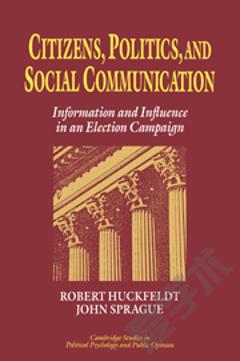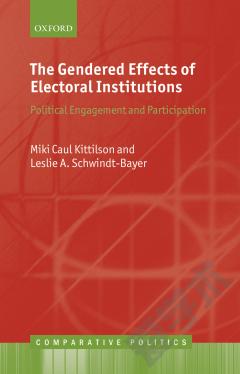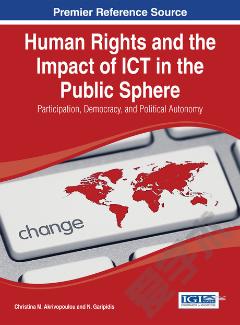Citizens, Politics and Social Communication: Information and Influence in an Election Campaign
Acknowledgments Part I. Democratic Politics and Social Communication: 1. The multiple levels of democratic politics 2. A research strategy for studying electoral politics Part II. Electoral Dynamics and Social Communication: 3. The social dynamics of political preference 4. Durability, volatility and social influence 5. Social dynamics in an election campaign Part III. Networks, Political Discussants, and Social Communication: 6. Political discussion in an election campaign 7. Networks in context: The social flow of political information 8. Choice, social structure, and the informational coercion of minorities 9. Discussant effects on vote choice: Intimacy, structure, and interdependence 10. Gender effects on political discussion: The political networks of men and women Part IV. The Organizational Locus of Social Communication: 11. One-party politics and the voter revisited: strategic and behavioral bases of partisanship 12. Political parties and electoral mobilization: political structure, social structure, and the party canvass 13. Alternative contexts of political preference 14. Political consequences of interdependent citizens Bibliography Index.
{{comment.content}}








 京公网安备 11010802027623号
京公网安备 11010802027623号